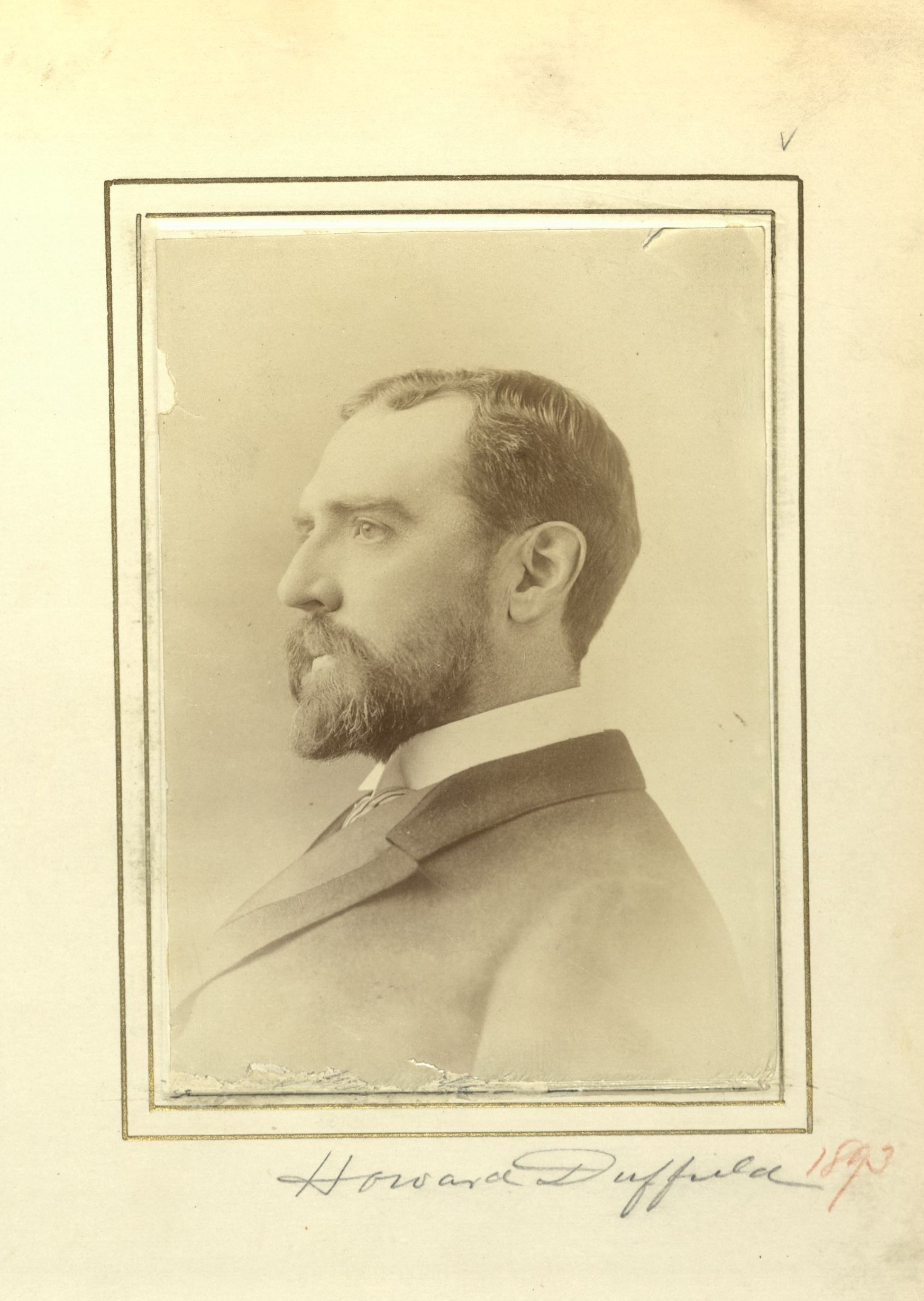Clergyman
Centurion, 1893–1941
Born 9 April 1854 in Princeton, New Jersey
Died 5 January 1941 in New York (Manhattan), New York
Buried Princeton Cemetery , Princeton, New Jersey
, Princeton, New Jersey
Proposed by Gouverneur M. Smith and Philip Schaff
Elected 4 March 1893 at age thirty-eight
Archivist’s Note: Brother of Edward D. Duffield
Century Memorial
The tall, slightly stooped figure and gentle face of Howard Duffield represented a long career of spiritual and occupational turmoil. But his vigor never faltered and to the end he would thump the arm of his chair and exclaim with enthusiasm: “It isn’t life and death, it is life and more life.” “Old First” in this city was the center of his most distinguished years. The First Presbyterian Church, at Fifth Avenue and Twelfth Street, had fallen on hard times when he became its pastor in 1891. The famous old institution was harassed by debts and taxes and threatened with demolition. Thanks to his courage and leadership, the church weathered the storm and became the staunch center of faith which it has ever since remained. The strength of his religious convictions matched the courage of his ministry. A liberal in his thinking, he had scant patience with those who opposed the adaptation of religious principles to modern needs. Whether it was a question of holding an outdoor service to attract passers-by or of challenging the competence of the New York Presbytery or of handling a hungry mob of jobless men at a Sunday service, Dr. Duffield instinctively took the side of candor and an open mind.
The activities of his long career were numerous. During the last World War he served as chaplain with the rank of Captain in the 9th Coast Artillery Corps, New York State Guard. In 1917 he announced that he was discarding his gown and white necktie and would wear a khaki uniform in the pulpit until the Allies had won. He was a trustee of Sailors Snug Harbor among other institutions and a member of several literary societies, including the Shakespeare Society, the Dickens Fellowship and the Browning Club. His friends remember especially the sweetness of his nature. A fellow clergyman—and fellow Centurion—writes of his going: “He couldn’t pass on his mantle; I think he took it with him. But he did leave me his silver-mounted walking stick which was his constant companion.” His was a kindliness fed by an unwavering faith.
Geoffrey Parsons
1941 Century Memorials

